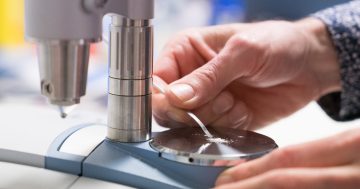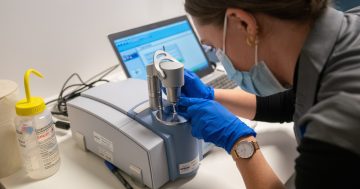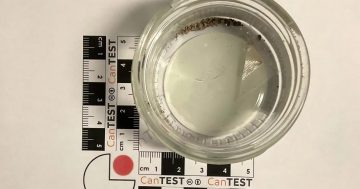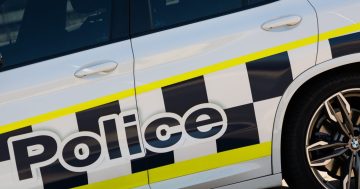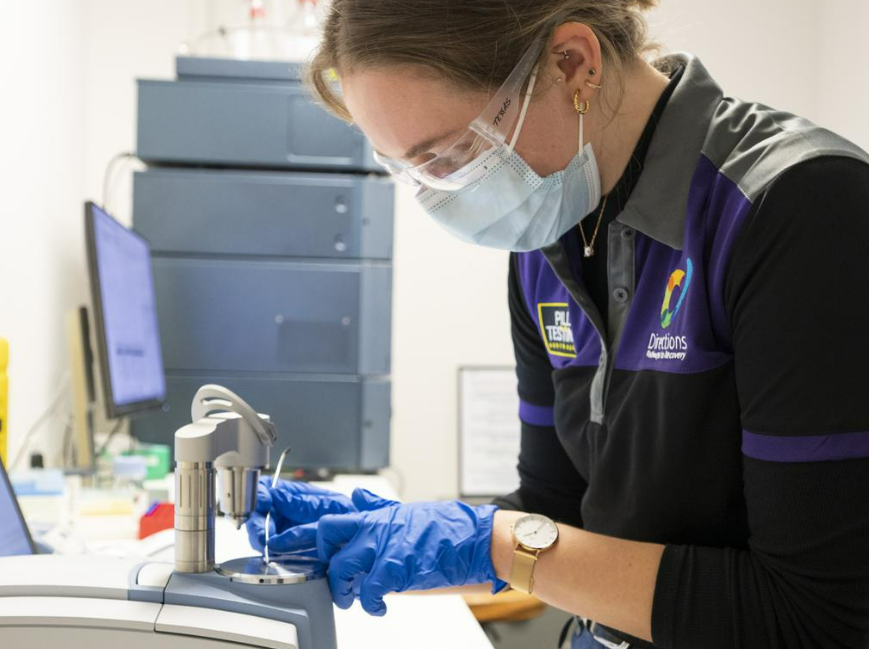
CanTEST has processed more than 1400 drug samples since it opened last year. Photo: CanTEST.
The ACT’s fixed-site pill testing facility has reported a “marked increase” in the purity of cocaine and MDMA being brought in for testing in recent months, and comes as multiple warnings have been issued in NSW about high-strength MDMA and cocaine spiked with heroin.
An MDMA sample brought in earlier this month contained 146.6 mg of MDMA free base or 174.5 mg of MDMA HCl, which is around twice the amount that someone may usually expect to take.
CanTEST chief officer Stephanie Stephens said the higher strength of the drugs means there is a much greater chance of overdose and other complications.
Ms Stephens said this is particularly a risk coming into the warmer months, as hotter conditions are associated with higher chances of death due to drug toxicity.
She urged Canberrans to exercise caution, start with a quarter of a dose and always get their drugs tested.
“People really don’t know what they’re mixing in their bodies,” she said.
“We’re urging people to get their drugs checked and to bring them into CanTEST. We can check the purity, and that’s a key risk.”
Ms Stephens said these cases follow a similar trend being seen in NSW, although as the state does not conduct regular pill testing activities, the extent of the connection is unclear.
“There has been an emerging issue interstate,” she said.
NSW Health has issued several warnings in recent weeks, including alerting residents that multiple high-strength MDMA tablets are circulating in the state at the moment.
Other drugs, such as cathinones, ketamine and ketamine analogues, have also been detected in some MDMA tablets and capsules.
Medical director of the NSW Poisons Information Centre Dr Darren Roberts said consuming high doses of MDMA has been linked to recent cases of serious illness and death in NSW.
“The health risks from MDMA are greatly increased if high amounts, including multiple doses, are consumed over a short period. Other risks include taking MDMA in combination with other stimulants, such as amphetamines, cocaine or cathinones,” Dr Roberts said.
NSW Health has also warned the community that heroin has been found in drugs thought to be cocaine.
NSW Health said the drug is currently circulating around Sydney and has resulted in one death and two hospitalisations of three people, all aged in their 30s, within the space of a week.
“We’ve seen heroin overdose among people using what they thought was cocaine. A heroin overdose could quickly result from snorting a single line,” Dr Roberts said.
“One of the dangers of illicit drug supply is the strength and contents of the substance you are getting is unknown and can be inconsistent. In light of this detection, people who use cocaine should also consider carrying naloxone.”
New drug decriminalisation laws have been in the ACT for nearly a month.
Ms Stephens said the testing site had seen an increase in traffic in recent weeks and “hopefully decriminalisation is helping people feel more able to come to CanTEST”.
“Things have been increasing the last couple of months,” she said.
Ms Stephens said more people tend to visit CanTEST during the warmer months, which may be partly due to the festival season when the facility often sees more traffic.
“We know that some people choose to use drugs in those settings,” she said. “We see that represented at CanTEST.”














